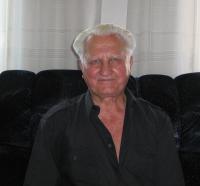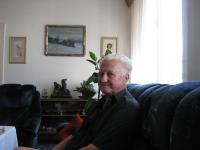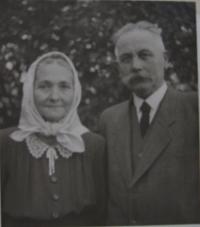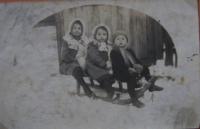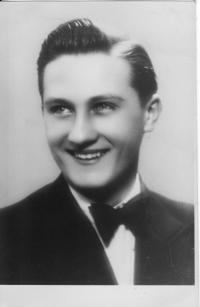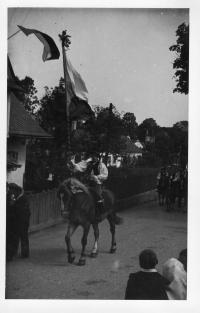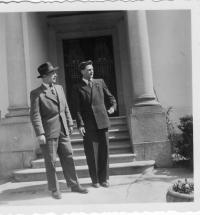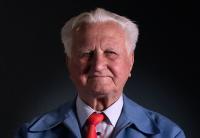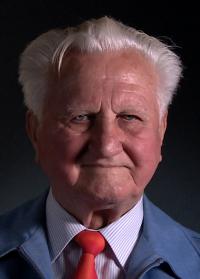The keys to freedom
MVDr. Alois Frank was born in 1925 in Svébohov. He studied grammar school in Zábřeh na Moravě. However, that was shut down after the border regions were annexed, and so he fled to Litovel to continue his studies. There he also joined the Czechoslovak Youths Union resistance group and became commander of Section II Litovel. Members of the group trained in combat, actively helped the families of those arrested and executed, and they also distributed thousands of pamphlets opposing the Nazi regime. Alois Frank was arrested in August 1944 and taken to the “garňák”, a military prison in Olomouc. He went through several prisons: the Kounice Dorm in Brno, and then Breslau and Zwickau, the end of the war found him in Waldheim. After the war he started studies at the Veterinary University in Brno. A year before graduation, after February 1948, he was expelled from all universities in Czechoslovakia. He worked as a manual labourer for several years, until he managed to get back into school with the help of a friend. In 1968 he was co-opted into the Jeseník town council, which meant more employment problems during the subsequent normalisation. He finally found himself a place as district vet in the Štítec region. Following November 1989, he was one of the founding members of the Civic Forum in Zábřeh na Moravě, and he was a member of the town council for four years. He now lives with his wife Zdena in Zábřeh na Moravě.

